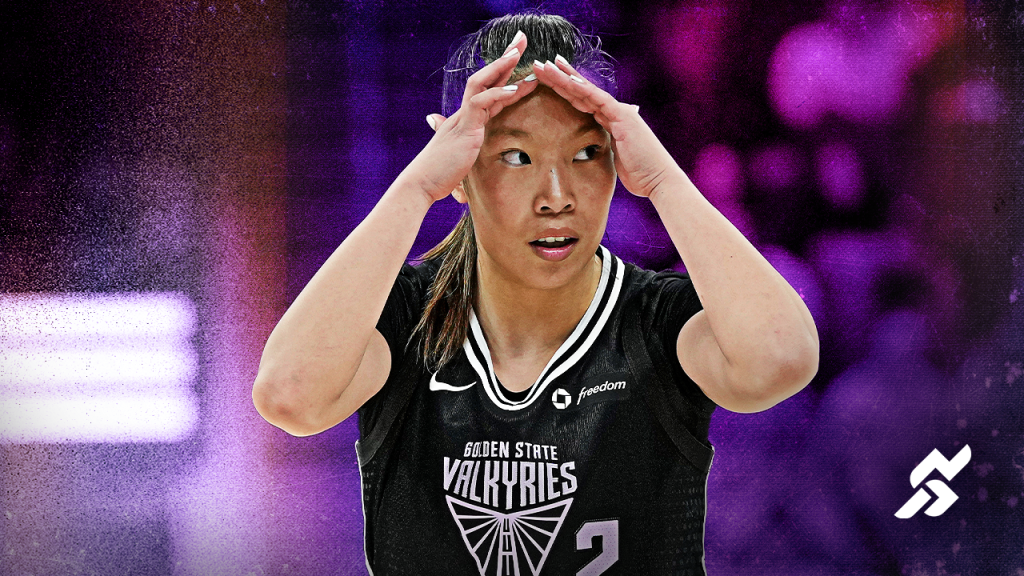Cameron Brink is only in her second season playing in the WNBA, but the Los Angeles Sparks player has made one thing very clear: She thinks team rosters should expand beyond 12 players.
Certain teams are acutely feeling the limitations right now due to injuries and some players leaving to represent their home countries in the EuroBasket international tournament, which started on Wednesday. The Sparks are among them; the team signed former Indiana standout Grace Berger this week to a hardship contract for the rest of the season after Kelsey Plum hurt her lower leg. Brink, Plum as well as guards Odyssey Sims and Rae Burrell rare all sidelined as they recover from injuries.
“I think now rosters need to be expanded before we add any more expansion teams,” Brink said this week to Hall of Famer Sue Bird on her podcast Straight to Cam, which she co-hosts with teammate Dearica Hamby. “We’ve had three people out. Now we’re at 10 people, and it puts a lot of strain on people that are signed into hardships.”
When a team roster dips below 10 available players due to injury or other absences, franchises offer free agents hardship contracts, which are short-term contracts that allow teams to temporarily exceed the league’s hard salary cap. The Women’s National Basketball Players Association (WNBPA) looks to address this limited flexibility in the new collective bargaining agreement, which needs to be struck before an Oct. 31 deadline.
Additionally, roster limitations create situations where rookie draftees aren’t guaranteed a spot on their team’s final roster. The Golden State Valkyries, who have six players competing in EuroBasket, re-signed Kaitlyn Chen this week. To the frustration of many fans, the former UConn guard—the 30th overall pick in the 2025 WNBA Draft—was cut after two preseason games, showing the conundrum that current roster limits create for player development.
“I’m with you that we need to do it,” Bird, who starred on the Seattle Storm for 19 seasons, said to Brink. “It’s just the trade-offs make it trickier because in our last CBA [and] the CBAs before that, I didn’t want to give up money for a 13th spot, because once you start adding players everybody has to give up a little bit of money. So that’s where it gets a little tricky.”
Bird, who serves as managing director of the USA Basketball women’s national team and is a part owner of the Seattle Storm, understands the key issues; she acted as executive committee vice president for the WNBPA during the last negotiation cycle for the current CBA inked in 2020. Bird’s remarks spark lingering questions: Would this group of player leaders compromise on higher wages to add another player to each roster? What concessions would they need to make, or more importantly, be willing to make to achieve roster expansion?
The WNBA is slated to add two new franchises next season in Portland and Toronto after adding the 13th team in the Valkyries this season. Bird believes that incoming expansion will help remedy the issue.
“I think more teams does help the issue of player development, but teams do need an extra spot or two,” Bird said. “Because we see it every year where some team gets hit with injuries, and it becomes a whole big thing. In the CBA negotiations, the players and the league will probably talk about that and hopefully they land somewhere.”
The union has stated it wants members of the star-studded 2024 draft class—including Brink, Caitlin Clark and Angel Reese—to be involved in securing a potentially historic CBA. Brink isn’t a player rep but uses her podcast to discuss player-related issues. Reese, who has the most Instagram followers of any WNBA player, says she’s learning from teammate and CBA committee member Elizabeth Williams about the issues at hand and finding where she can assist.
“I am new to this league, but I (also) know my voice and my platform, and I know a lot of people can hear me,” Reese told Sportico last week in Brooklyn. “I try to be involved as much as I can. … We continue to have [union] meetings, and we’re excited for the new CBA.”
